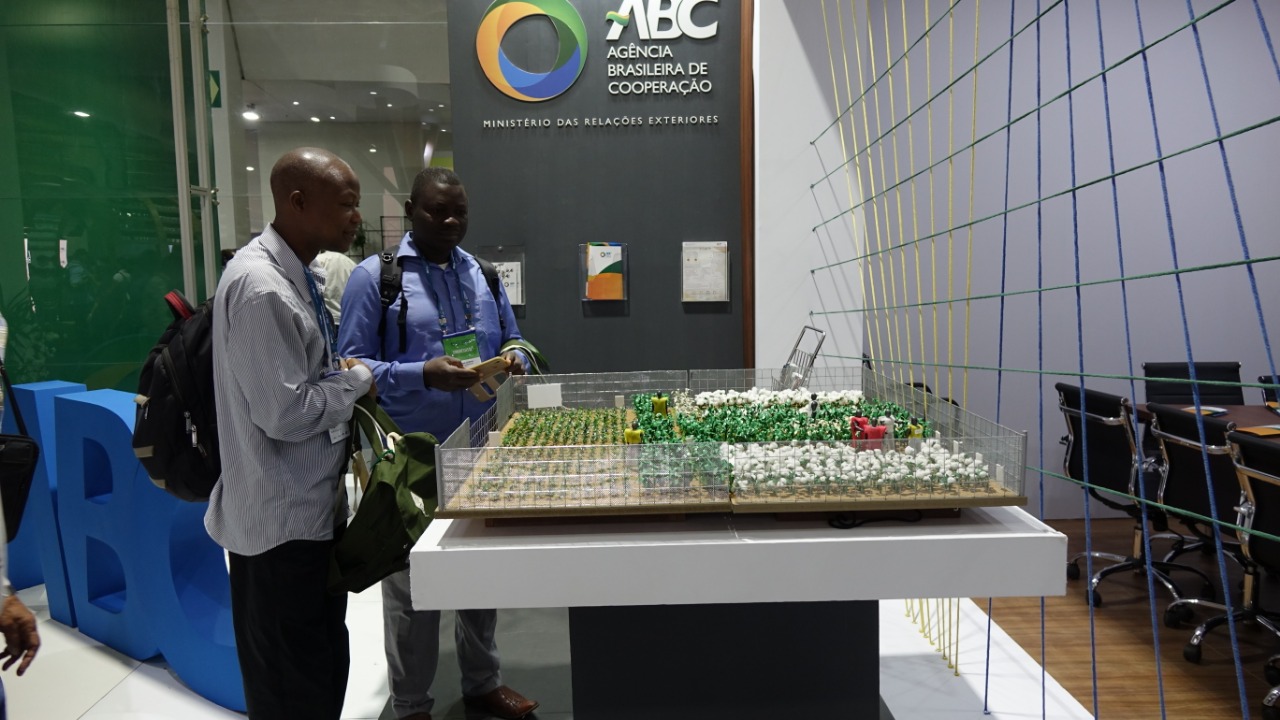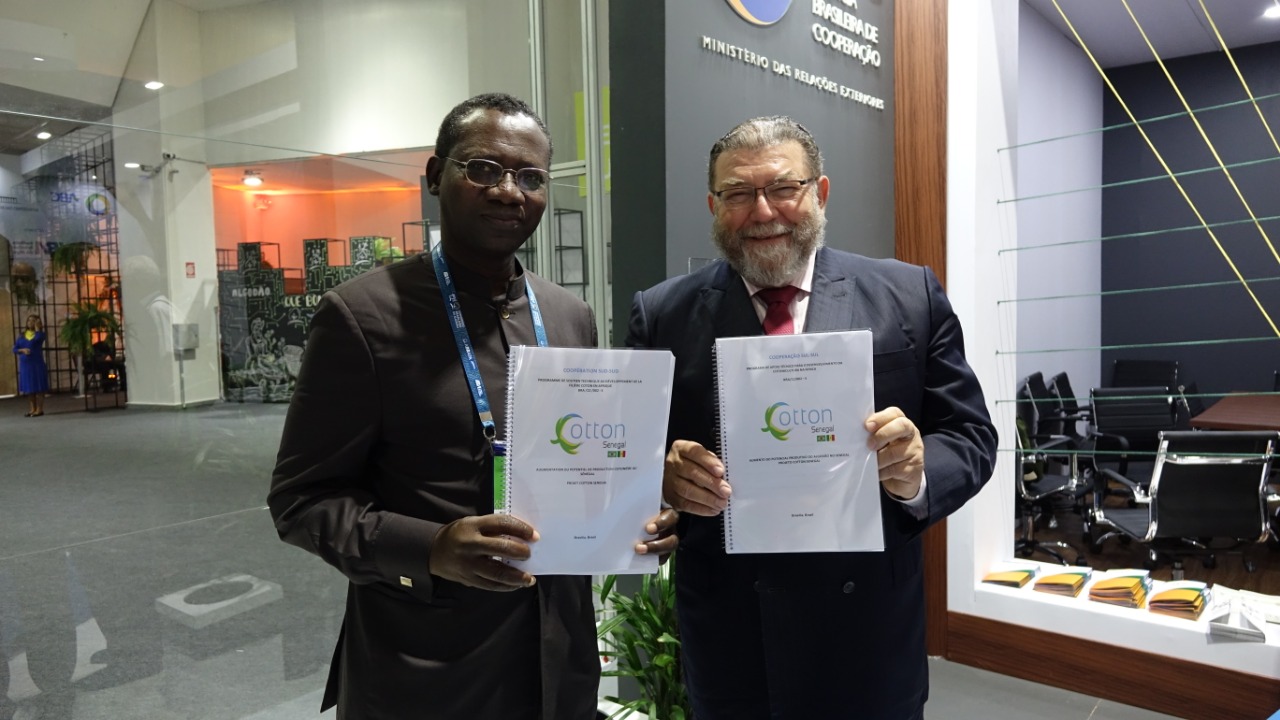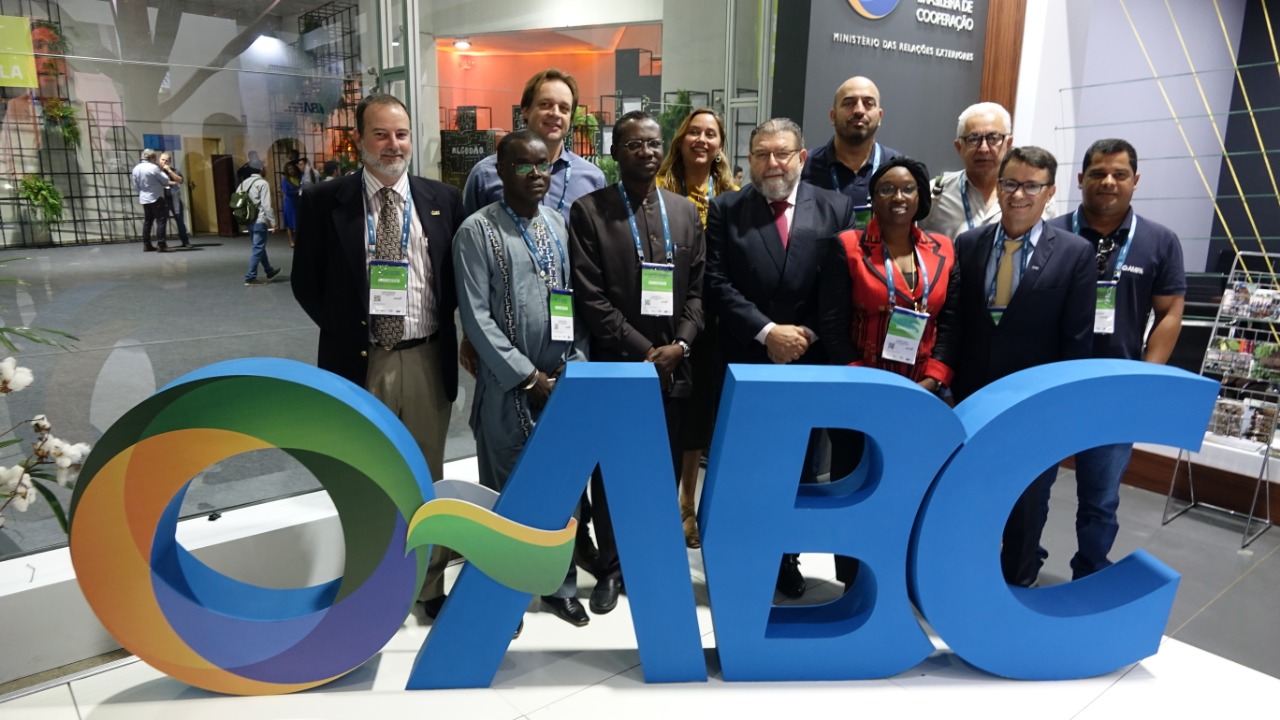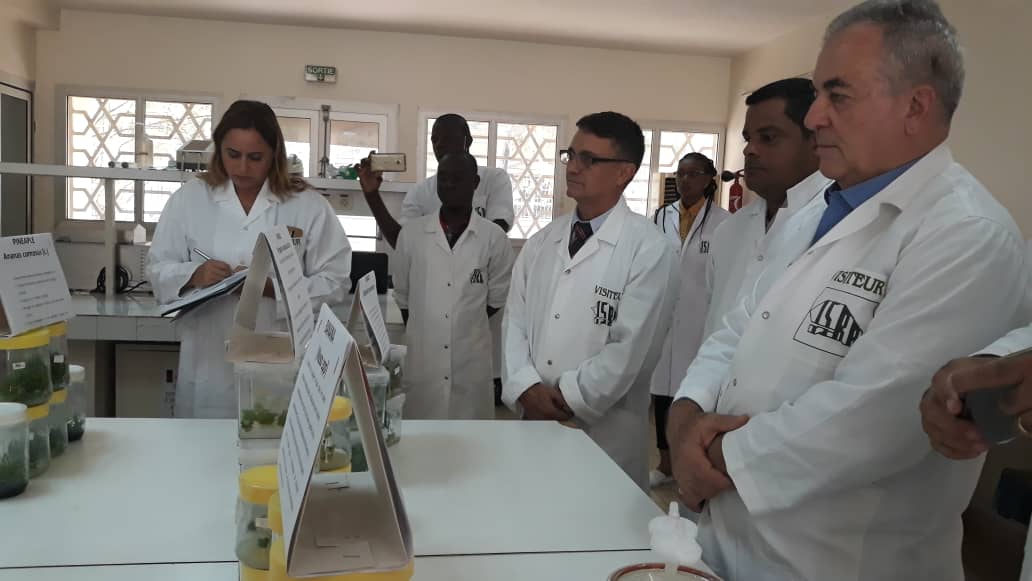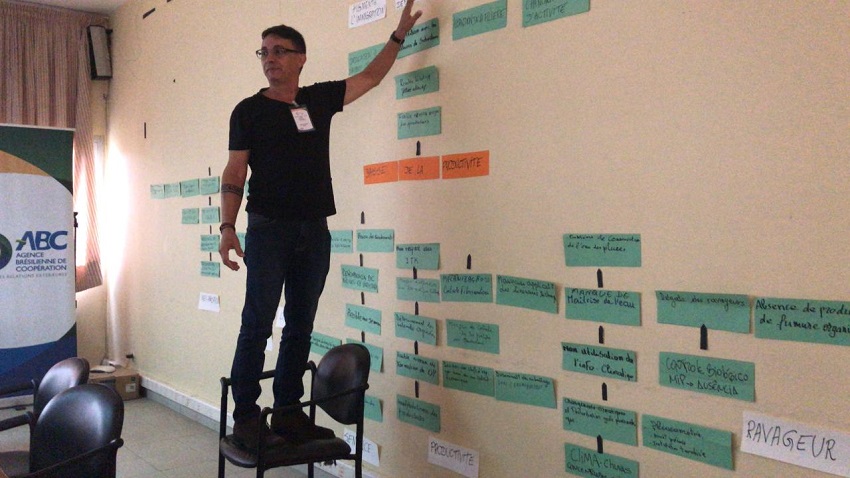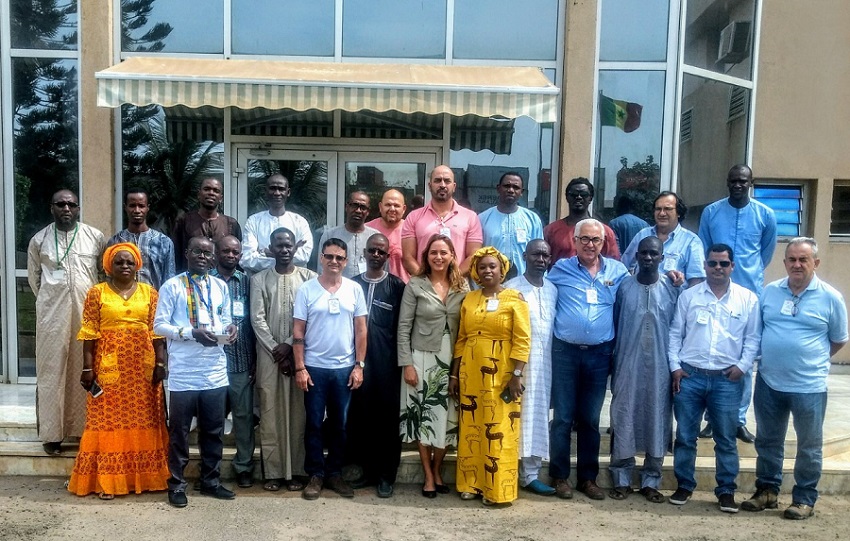 Brazil Supporting the Increase of Cotton Production in Senegal
Increasing Senegalese farmers’ productive capacities through the introduction of new cotton varieties
Brazil Supporting the Increase of Cotton Production in Senegal
Increasing Senegalese farmers’ productive capacities through the introduction of new cotton varieties

Challenges
The agriculture sector plays a strategic role in Senegal's economic and social development. According to data from the Ministry of Agriculture and Rural Equipment, agriculture occupies about 70 per cent of the workforce and contributes less than 10 per cent of GDP. Cotton cultivation reached a record production of 52,421 tons in 2008, putting producers in a good position in the international market.[1] Since then, cotton productivity and farmers' incomes have been declining owing to a combination of outdated farming practices, rising costs and institutional difficulties.
Towards a Solution
With Senegal’s challenge of low-productivity, high-risk, low-resilience agriculture in mind, ABC is promoting a project to increase the Senegalese family farmers’ productive capacities with the insertion of new cotton varieties. This general objective leads to the goals of promoting better-quality cotton, which can be competitive in the national and international markets, and expanding job opportunities and income for young people living in rural areas, including, and especially, women. In 2019, an ABC prospecting mission went to Senegal in response to the demand for cooperation made by the Government of Senegal to integrate the range of Brazilian technical cooperation initiatives to support the cotton production chain in Africa, with the final purpose of the visit being to prepare a proposal for a cooperation project in this area.
With regard to methodology, actions are being taken to improve mechanization in the field and encourage no-till farming, with the following objectives: (a) strengthening institutional capacities of the Senegalese Agricultural Research Institute (ISRA) to lay the groundwork for adequate and precise policy-making; (b) technical training (technical assistance and rural extension services) to promote capacity-building; (c) provision of more effective services to Senegalese farmers to create market practices and develop the entire value chain from production to distribution; and (d) technology transfer and access to equipment to modernize the techniques used in the cotton production chain.
In terms of outcomes, the delegation, comprising officials, academics and scientists from the Ministry of Foreign Affairs, the Minas Gerais Association of Cotton Producers and the Federal University of Lavras (Brazil) stayed in Senegal for a week where, through involvement with government agents and local communities, it was able to identify the country’s main agriculture-related needs, collecting indicators in the cotton production field. The ABC mission resulted in a comprehensive study on the Senegal cotton sector, compiling information on its main challenges and deficiencies, coupled with potential solutions and good practices to fill in those gaps. During the technical visits carried out by the Brazilian delegation, it was possible to learn about research already carried out by the Senegalese Institute on seed quality of food crops in addition to an in-vitro culture laboratory, where clones of good-quality and disease-free plants multiply. Afterwards, ABC also organized a meeting of the Brazilian delegation with representatives of Senegalese institutions that work in the agricultural sphere to discuss the challenges and difficulties that the sector faces.
The technical cooperation promoted by Brazil in accordance with South-South cooperation principles of horizontality, knowledge transfer and no conditionalities can contribute to overcoming the challenges faced by the cotton sector internationally and nationally, such as fluctuations in cotton prices, agricultural subsidies practised by some countries or the market dispute over unsustainable yarns and fabrics. Owing to the involvement of the Governments of Brazil and Senegal and incorporation of the initiative into broader Senegalese strategic planning, the initiative finds itself aligned with long-term commitments and sustainability principles.
Contact Information
Countries involved
Supported by
Implementing Entities
Project Status
Project Period
URL of the practice
Primary SDG
Secondary SDGs
Similar Solutions
| NAME OF SOLUTION | Countries | SDG | Project Status | |
|---|---|---|---|---|
A Billion Brains: Smarter Children, Healthier Economies High Level Meeting on South-South Cooperation for Child Rights |
Brazil, Senegal | 17 - Partnerships for the Goals | Completed | View Details |
A-Card Initiative |
Brazil, Senegal | 10 - Reduced Inequalities | Completed | View Details |
Accelerating Digital Transformation in All Ministries in Bangladesh Promoting the rapid design and implementation of plans to digitize all ministries and subordinate government institutions in Bangladesh |
Brazil, Senegal | 10 - Reduced Inequalities | Ongoing | View Details |
Accelerating the Transformational Shift to a Low-Carbon Economy in Mauritius Towards supplying 35 percent of the country’s energy needs with renewables by 2025 |
Brazil, Senegal | 05 - Gender Equality 09 - Industry, Innovation and Infrastructure 13 - Climate Action | Ongoing | View Details |
Accelerator Labs Network Following collective intelligence methods to address emerging sustainability challenges and the growing demand for local solutions |
Brazil, Senegal | 08 - Decent Work and Economic Growth 13 - Climate Action | Ongoing | View Details |
